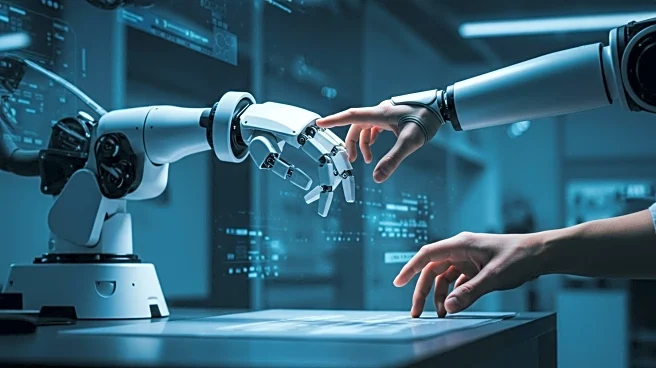What's Happening?
The integration of AI agents into the workforce is transforming how companies operate, with AI taking on roles in research, workflow tasks, and trend prediction. This shift is not merely about improving efficiency but represents a fundamental change in work dynamics. AI is redefining roles and responsibilities, allowing human workers to focus on creativity, strategic judgment, and emotional intelligence. Companies are increasingly exploring AI deployment, although many are still in the pilot phase. The challenge lies in redesigning workflows to fully leverage AI capabilities, rather than simply automating existing processes.
Why It's Important?
The collaboration between AI and humans is poised to redefine competitive advantage in the business world. By reallocating human effort to areas requiring creativity and strategic thinking, companies can enhance productivity and innovation. This shift could lead to significant changes in various industries, including customer service, marketing, and operations. Organizations that successfully integrate AI into their workflows may gain a competitive edge, while those that fail to adapt could fall behind. The transformation also raises questions about the future of work and the skills required for the workforce of tomorrow.
What's Next?
As companies continue to explore AI integration, the focus will be on overcoming challenges related to process redesign and scaling AI initiatives. Leaders will need to rethink how work is structured, ensuring that AI and human collaboration is optimized. This may involve investing in training and development to equip employees with the skills needed to work alongside AI. Additionally, businesses will need to address ethical considerations and ensure that AI deployment aligns with organizational values and societal expectations.
Beyond the Headlines
The rise of AI in the workforce presents ethical and cultural challenges, including concerns about job displacement and the need for new skill sets. Companies must navigate these issues carefully to maintain employee morale and public trust. The successful integration of AI could lead to a more dynamic and innovative workforce, but it will require thoughtful planning and execution to achieve these outcomes.









